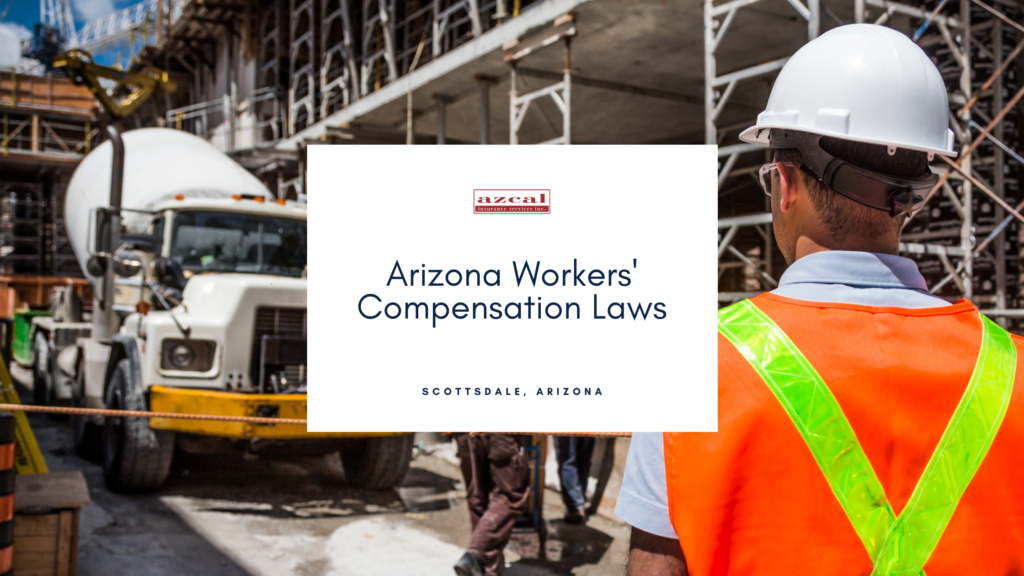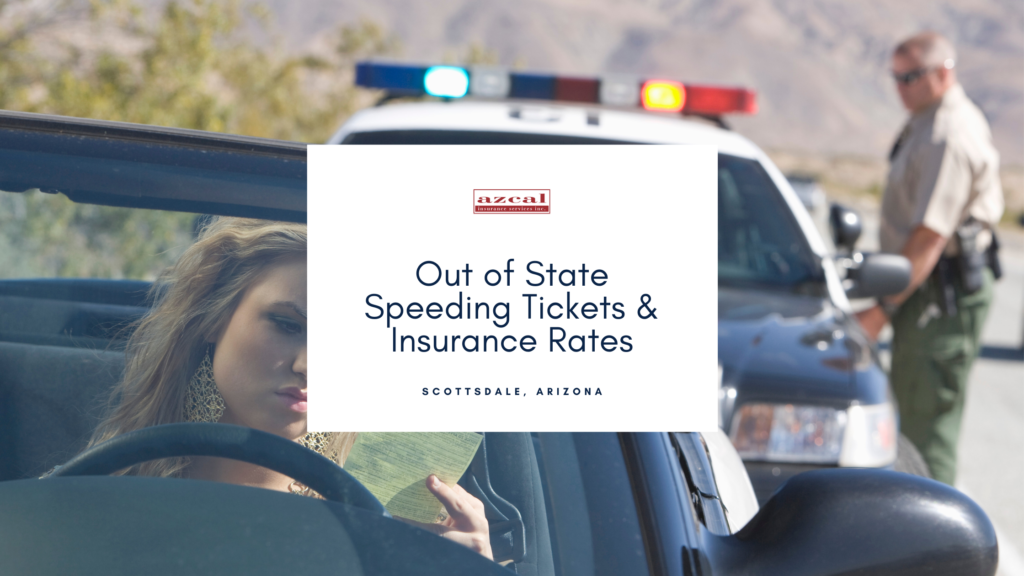Everything You Need to Know About Arizona Workers’ Compensation Laws

If you own a business in Arizona, it’s important for you to understand the state’s laws regarding workers’ compensation. Workers’ compensation is insurance coverage that a business provides to its employees in the event of a job-related illness or injury. Learn more about situations where workers’ compensation might be needed by contacting an agent at AZCAL Insurance Services.
Arizona Workers’ Compensation Requirements
Are you a business owner? Do you employ one or more people? Continue reading for information related to Arizona’s workers’ compensation laws. From the specific requirements to penalties to settlements, we’re here to fill in the details about workers’ comp.
Do All Businesses Need Workers’ Compensation in Arizona?
In Arizona, if a business employs one or more people, then it must carry workers’ compensation insurance. Coverage is required for both part-time and full-time employees. While this is the rule, there are a few exemptions worth noting. Workers’ compensation coverage is not necessary for the following groups:
- Independent contractors
- Sole proprietors
- Casual/occasional workers
- Domestic workers (those employed in a home)
For further clarification, we’ll elaborate on a couple of these groups.
Independent Contractors
Again, workers’ compensation is not required for independent contractors. However, to avoid any employee classification disputes, a business should ensure that their worker qualifies as a contractor and not an employee. Several factors to consider include:
- Employment duration
- Payment method
- Right to hire/fire
- How much oversight the employer has over the work
- Who supplies the tools/materials
- Work hours
- If the work is performed in the regular course of business
Sole Proprietors
If someone is self-employed and is the sole proprietor in the business, then workers’ compensation is not mandated. However, sole proprietors still have the option to carry workers’ compensation for themselves. In some cases, it is strategic for a sole proprietor to have coverage to help keep the business afloat in case the business owner is unable to work immediately after a job-related illness or injury.
What Does a Workers’ Compensation Policy Cover?
If an employee suffers a work-related illness or injury, workers’ compensation will cover the costs associated with it. More specifically, workers’ comp will help with the following:
- Medical care for an accident or injury on the job (such as a sprained ankle)
- Missed wages if an employee is unable to work due to the illness or injury
- Ongoing medical care for severe injuries (such as a broken leg that requires surgery or physical therapy)
- Medical care for a job-related illness due to unhealthy working conditions
- Chronic injuries (such as carpal tunnel syndrome)
- Funeral costs/death benefits
- Disability benefits if an employee can’t return to work immediately due to the work-related injury
Are There Penalties for Businesses Without Workers’ Compensation?
Yes, a business will face significant penalties if an employee files a workers’ compensation claim with the Industrial Commission of Arizona (ICA) and the business has not provided coverage. The ICA’s Special Fund Division will front the cost of the workers’ compensation benefits but will then charge the business for reimbursement with additional penalties. Some of these include:
- 10% of the benefits paid or $1,000 (whichever amount is greater)
- Separate penalties from $1,000-$10,000
In the end, businesses without workers’ compensation coverage will probably end up paying more in fees and penalties than they would have if they had paid the premium for workers’ comp.
What Affects the Cost of Workers’ Compensation?
The cost of workers’ compensation will vary with each business type, but a few factors for deciding the cost include:
- Payroll
- Location
- How many people the business employees
- Type of industry and risk factors that accompany it
- Limits of coverage
- History of claims
To determine exactly which workers’ compensation policy your business needs, you should reach out to AZCAL Insurance Services. Our team of expert insurance advisors will inform you of your options.
Does Arizona Law Allow for Workers’ Compensation Settlements?
Up until a few years ago, Arizona did not allow for workers’ compensation settlements. However, Arizona law now permits the parties to come to a settlement with the ICA’s approval. A workers’ compensation settlement can benefit both the business and the employee. For the business, a settlement means the business won’t be held liable for any future expenses associated with the employee’s claim. For the employee, a settlement provides a lump-sum payment or a schedule of payments over a specific period of time. It can be helpful for both parties to take care of everything at once without any lingering legal ramifications.
What is the Statute of Limitations for a Workers’ Compensation Claim?
The statute of limitations for a workers’ compensation claim in Arizona is one year from the date of injury. However, an injured worker should notify their employer as soon as possible after the injury occurs. Once a workers’ compensation claim is submitted, the insurance company has 21 days to accept or deny the claim. If the insurance company denies the claim, then the employee has 90 days to request a hearing.
How to Get Workers’ Compensation in Arizona
If your Arizona business needs a workers’ compensation policy, AZCAL Insurance Services can help. Our team will do the hard work for you and find the best deals available. Not only does getting a workers’ compensation policy adhere to the law, but it also protects your employees’ futures. Contact AZCAL Insurance Services today for quality service.
Can Out-of-State Speeding Tickets Affect Your Insurance Rates?

Have you ever been driving in a different state and suddenly noticed you are going way faster than the speed limit or you realize you don’t even know the speed limit? There are several reasons you are more likely to get a speeding ticket when taking a road trip or driving in another state. These include:
- It’s easy to lose track of your speed when road tripping
- You might miss the signs for a lower speed limit when driving in a new area
- You are not familiar with the general speed limit laws in that state. For example, you might drive a speed that is appropriate for the highway in your state but is too fast for the highway in a different state
- You might be unfamiliar with your rental car
If you are in Arizona, you might be wondering if and how an out-of-state speeding ticket would affect your insurance rates.
How Out-of-State Speeding Tickets and Arizona’s Point System Work
In order to understand how an out-of-state speeding ticket could affect the insurance rates of an Arizona resident, it is important to understand how Arizona records traffic violations. We’ve answered the following frequently asked questions to help you understand how the whole system works and how it might affect you.
If I get a traffic ticket in another state, do I have to pay it?
In short, yes. Arizona is a part of the Driver’s License Compact (DLC) and Nonresident Violator Compact (NVC). The members of the DLC and NVC agree to report and enforce the penalty for out-of-state traffic violations. Almost all of the states are a part of the DLC and NVC, which means that in most situations, you will need to pay the fine if you get a traffic ticket in another state. To be clear, the fine is collected in the state where the violation occurred.
Will a traffic ticket from another state add points to my driver’s record in Arizona?
Again, the short answer is yes. Because Arizona is a part of the DLC, most states will report a traffic violation to the driver’s home state. Generally, in Arizona, an out-of-state traffic violation will add points to the driver’s record in the same way an in-state traffic violation would. Here is a breakdown of the point system in Arizona.
Will a traffic ticket from another state increase my insurance rates?
The answer to this question is not as clear-cut, but an out-of-state ticket certainly could increase your insurance rates. Once you get points on your driver’s record, the auto insurance company is able to increase your rates. Whether or not they do depends on things like:
- Your relationship with your insurance company
- Your driving history
- The severity of the offense
- And more
If the out-of-state traffic violation is a first-time offense, then the insurance company might choose to forgive the offense and keep it from affecting your rates. However, if you have had multiple traffic violations, then it is likely an out-of-state traffic violation would increase your insurance rates.
Contact an Experienced Independent Insurance Agency
Do you have points on your driver’s record, either from in-state or out-of-state traffic violations? If you are concerned about your traffic violation record and are looking for both quality and affordable car insurance, don’t hesitate to contact AZCAL Insurance Services. Our independent insurance agency will do the shopping for you. We can give you your best options for the best possible price. What more could you want? Contact us today to learn more!
Everything You Need to Know About Arizona Rideshare Insurance

Have you considered using your free time to drive for rideshare companies such as Uber or Lyft? While the need for rideshare drivers took a dip in 2020 due to COVID-19, the demand is rapidly increasing. Whether it be a main source of income or supplemental, this type of job has become increasingly popular. Not only is it an effective way to earn money, but it also allows people to be their own boss and maintain a flexible schedule. However, before launching your rideshare career, you should consider the type of insurance that is required in Arizona.
Do You Need Special Insurance to Drive for Uber or Lyft?
If you want to drive for a ridesharing company like Uber or Lyft in Arizona, then you will need to get rideshare insurance. Your personal auto insurance policy will not be sufficient to cover you when you are “on the job”. In fact, your insurance company might cancel your personal policy if you make a claim against it for commercial purposes (such as ridesharing).
What is Rideshare Insurance?
Rideshare coverage can be included as a specific “rideshare endorsement” to your personal auto insurance policy or a separate commercial insurance policy.
Rideshare companies like Uber and Lyft provide insurance coverage to drivers with some exclusions. Your personal auto insurance policy will not cover you in these circumstances. A rideshare insurance policy is meant to fill these gaps.
Your insurance company can help you make the necessary updates to your policy and ensure that you are covered as a rideshare driver.
What Type of Coverage Does Uber & Lyft Provide?
Here is an outline that will help you understand the type of coverage that Uber and Lyft provide.
- Not logged into the Uber or Lyft app – During this time, the driver’s personal auto insurance will provide coverage if there is an accident.
- Logged into the Uber or Lyft app but no accepted ride request – During this time, Uber and Lyft provides 3rd party insurance or liability coverage in the case that the driver’s personal insurance is not applicable. This is not comprehensive insurance. It will cover the injuries of the other parties in the vehicle, but it will not cover the driver’s losses.
- Accepted ride request until the rider leaves the vehicle – During this time, Uber and Lyft provide more comprehensive coverage, which insures the driver and the rider(s). However, the coverage is limited and only kicks in after the drivers make a claim with their own insurance company.
Read more about the specific coverage limits for Uber and Lyft.
Why Purchase Rideshare Insurance?
To be clear, if you want to drive for a rideshare company, then rideshare insurance is absolutely necessary. If you are in an accident while logged into the rideshare app or during an accepted ride, then the first step is to make a claim with your own insurance company. However, you can’t make a commercial accident claim against a personal auto insurance policy. If you don’t have a special rideshare policy, then you are violating your insurance company’s terms. This could result in the termination of your personal auto insurance policy.
Get a Rideshare Insurance Quote Today!
If you want to become a rideshare driver, don’t let the issue of insurance get in your way. AZCAL Insurance Services is here to help. As an independent insurance agency, we will evaluate all of your options to find you the best possible deal. You are our first priority. Contact us today to get a free quote!